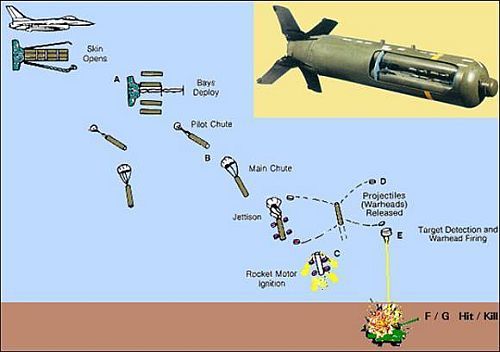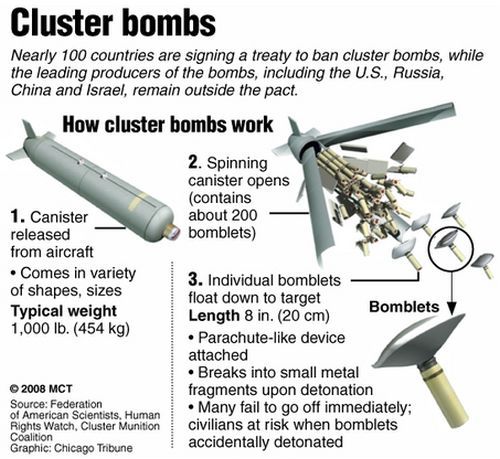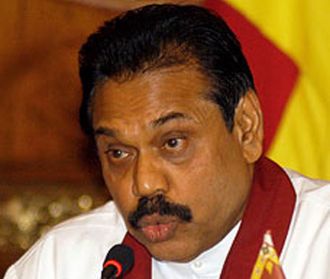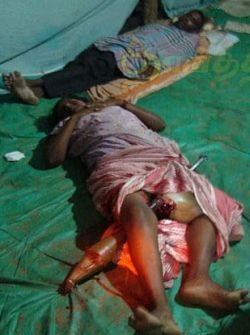Big Trouble for Sri Lanka: UN Has Cluster Bomb
Evidence from Northern Province

 One photo shows a woman with a rocket that literally pierced her
lower half, but failed to explode. These are heinous images that the government
of SL did everything to prevent being seen, but they had no such power. Even
well-planned lies leak visions of truth very early.
One photo shows a woman with a rocket that literally pierced her
lower half, but failed to explode. These are heinous images that the government
of SL did everything to prevent being seen, but they had no such power. Even
well-planned lies leak visions of truth very early.

Majinda Rajapaksa. Special thanks to
sagennext.com
|
(SALEM) - You have to wonder about the life span of a lie - they all
have one after all. Dead men tell no tales, but living witnesses, photo and
video evidence, and actual battlefield remnants of war crimes... have plenty to
say. Those elements when combined, can lead to the sound of prison bars slamming
shut.
A government's use of inhumane weapons on civilian populations is a
dishonorable and illegal act; investigations armed with the evidence now
mounting against Sri Lanka, generally expose government scoundrels who have no
business leading anyone, and their lies make the process of ushering in the
truth an even uglier task. Defiance over war crimes is nothing new, but Sri
Lanka's has been nearly unprecedented, by anything in modern history.
Colombo's Rajapakse regime went way too far, they have refused to be
accountable for what took place: the slaughter of what may have been well over
100,000 Tamils. Now, United Nations inspectors have pinned the tail on the
donkey, one might say, locating evidence of cluster bomb use, something Sri
Lanka has repeatedly, vehemently denied, even though it was reported at the
time, as further indicated below.
Of course SL denies the use of illegal weapons, and they deny
killing civilians, they denied routing those civilians into smaller and smaller
areas in order to pound them with all types of munitions; they basically deny
everything. Then of course is the fact that after the bombing ended, government
forces entered the remaining refugee areas and slaughtered civilians ruthlessly
with guns, machetes, and other weapons.
Photo and Video Evidence
 |

 One photo shows a woman with a rocket that literally pierced her
lower half, but failed to explode. These are heinous images that the government
of SL did everything to prevent being seen, but they had no such power. Even
well-planned lies leak visions of truth very early.
One photo shows a woman with a rocket that literally pierced her
lower half, but failed to explode. These are heinous images that the government
of SL did everything to prevent being seen, but they had no such power. Even
well-planned lies leak visions of truth very early.
In fact it is all very perverse, as shown by the fact that the
soldiers recorded themselves on video, gloating over the silenced victims of
sexual abuse, as their thrashed bodies; young, stripped of clothing and dignity;
raped, dead and dying, are thrown carelessly into the back of a truck. These men
of the Sri Lanka army regarded the women as Tamil 'terrorists', implying this
gave them a license to get away with rape and murder.
Indeed, it is their own doing, as the outing of that crucial
evidence shown by Channel-4 in their pair of documentaries, the
series 'Sri Lanka's Killing Fields', seemed to be among the elements that
tipped the scales and proved beyond a shadow of a doubt that Sri Lanka was
itself guilty of terrible crimes against humanity.
The lies that have accompanied their story from day one, make the
emergence of the truth a labor-intensive birth; it hurts more and is far more
dangerous to the real health of this country than the Sinhalese Buddhist
majority had possibly anticipated, as they conducted their bloodbath of Tamil
people; civilians, just children in cases, so much grief, so many tears, and all
of Sri Lanka's officials denied every part of it, and accused human rights
groups and one particular London television station, of being blatant liars, as
they have stated about all parties who refuse to be silent about this.
Cluster Bomb Evidence
The AP and many other sources, have reported that unexploded
cluster munitions were located in the Puthukudiyiruppu area of northern Sri
Lanka. This appears to confirm, for the first time, that these illegal weapons
were in fact used in Sri Lanka's long running civil war.
The news agency speculates that this new finding will increase
existing calls for a thorough, international investigation into possible war
crimes connected to the last months of the fighting that ended in May 2009. It
has been widely reported, that the government of Sri Lanka has exclusively
denied all allegations of having used cluster munitions during the final months
of fighting.
The Associated Press wrote:
| “ |
Cluster munitions
are packed with small "bomblets" that scatter indiscriminately and often harm
civilians. Those that fail to detonate often kill civilians long after fighting
ends.
They are banned
under an international treaty adopted by more than 60 nations that took effect
in August 2010, after the Sri Lankan war. The nations that haven't adopted the
treaty include Sri Lanka, China, Russia, India, Pakistan and the U.S., which
says the bombs are a valid weapon of war when used properly.
The Associated
Press obtained a copy Thursday of an email written by a U.N. land mine
expert that said unexploded cluster bomblets were discovered in the
Puthukudiyiruppu area of northern Sri Lanka, where a boy was killed last month
and his sister injured as they tried to pry apart an explosive device they had
found to sell for scrap metal.
The email was
written by Allan Poston, the technical adviser for the U.N. Development
Program's mine action group in Sri Lanka.
"After reviewing
additional photographs from the investigation teams, I have determined that
there are cluster sub-munitions in the area where the children were collecting
scrap metal and in the house where the accident occurred. This is the first time
that there has been confirmed unexploded sub-munitions found in Sri Lanka," the
email said.
During the final
weeks of the war, tens of thousands of civilians and Tamil Tiger rebel fighters
were trapped in a tiny section of Puthukudiyiruppu as attacking government
forces closed in on them.
Lakshman Hulugalla,
a Sri Lankan government spokesman on security matters, said the military had not
used cluster munitions in the war.
"We are denying that
information," he said.
The U.N. did not
immediately respond to anAP request for comment.
|
” |
